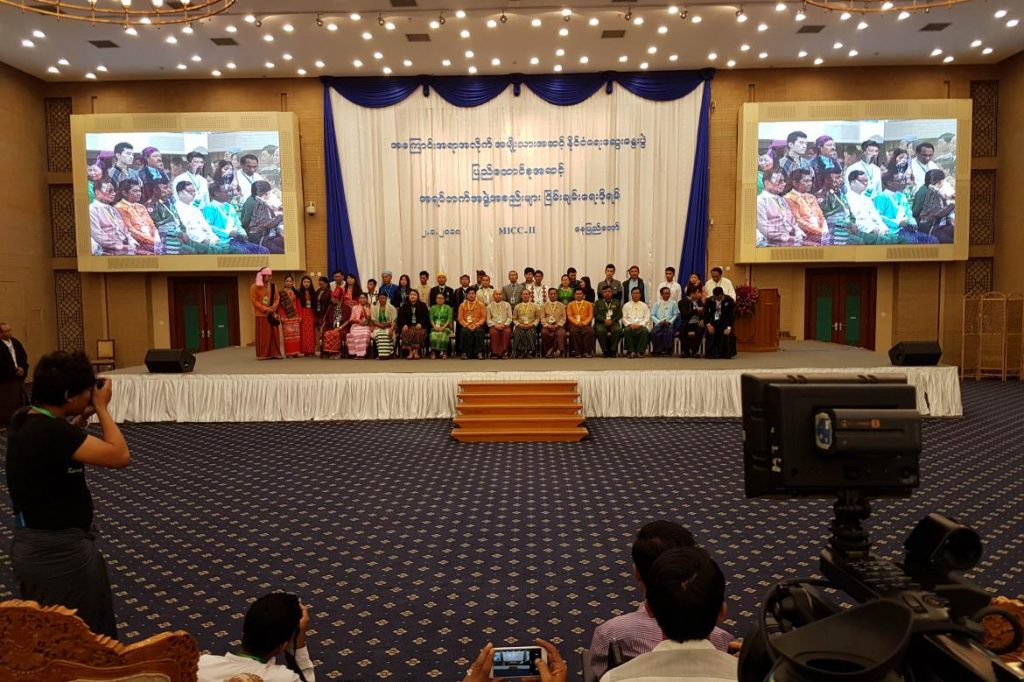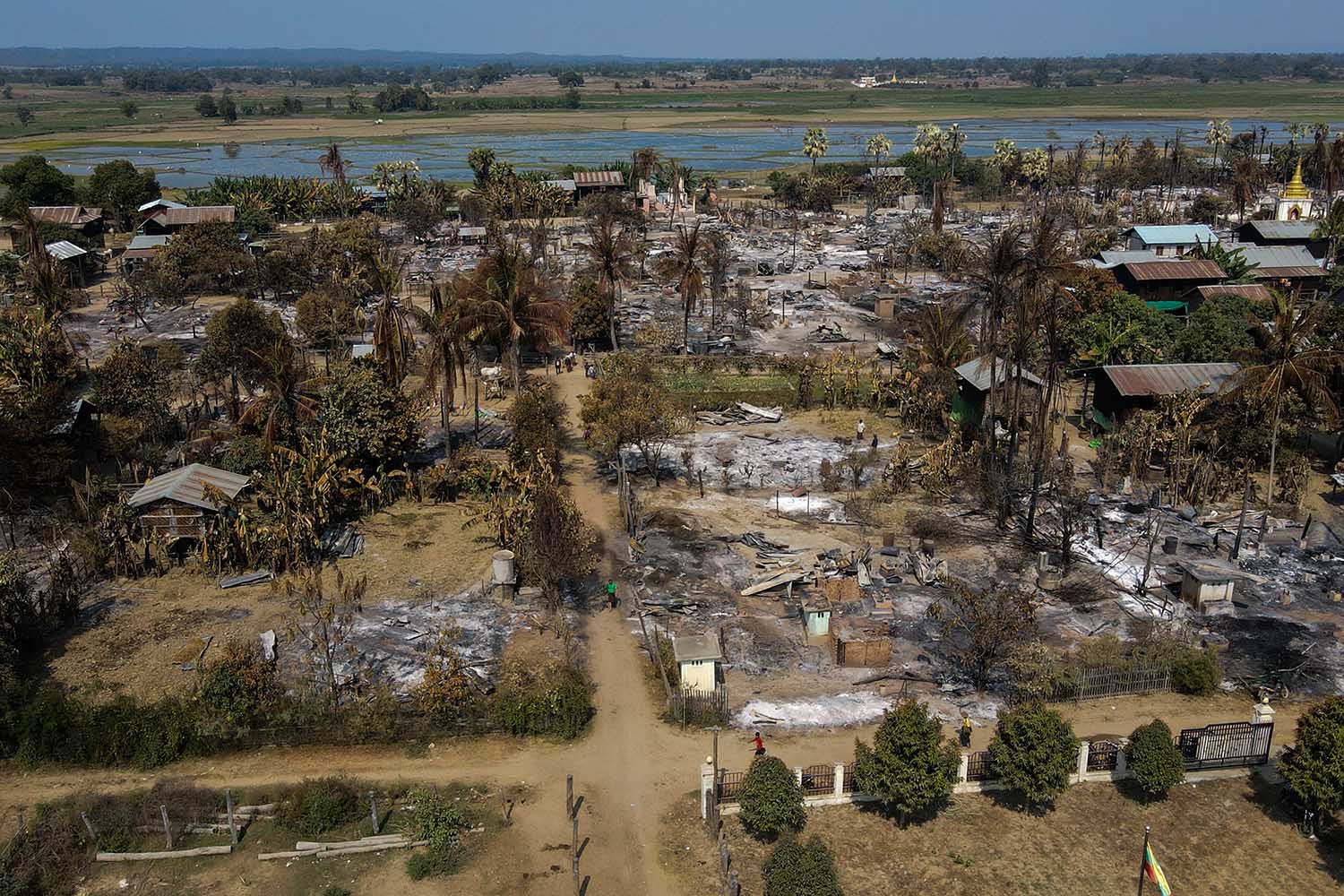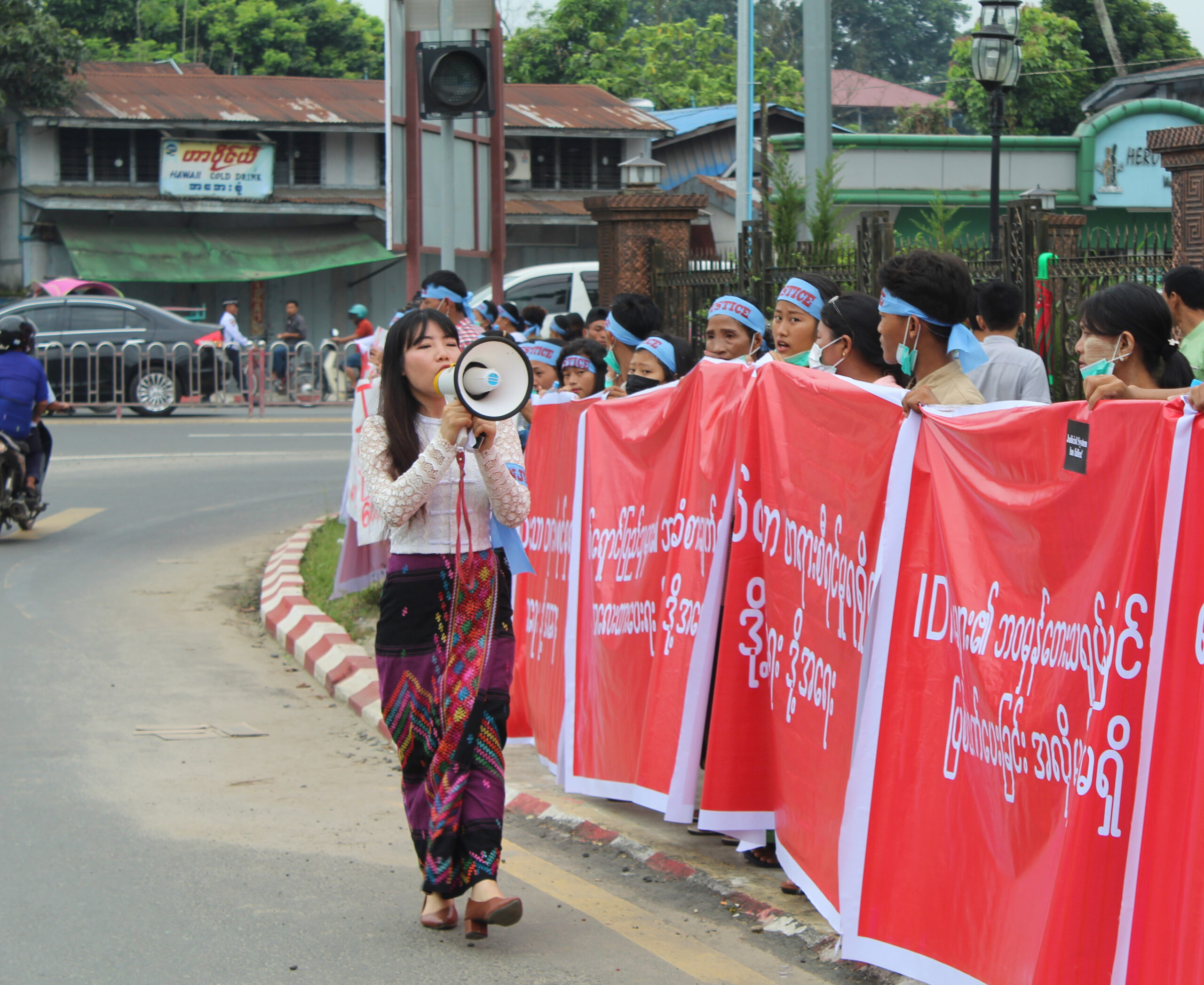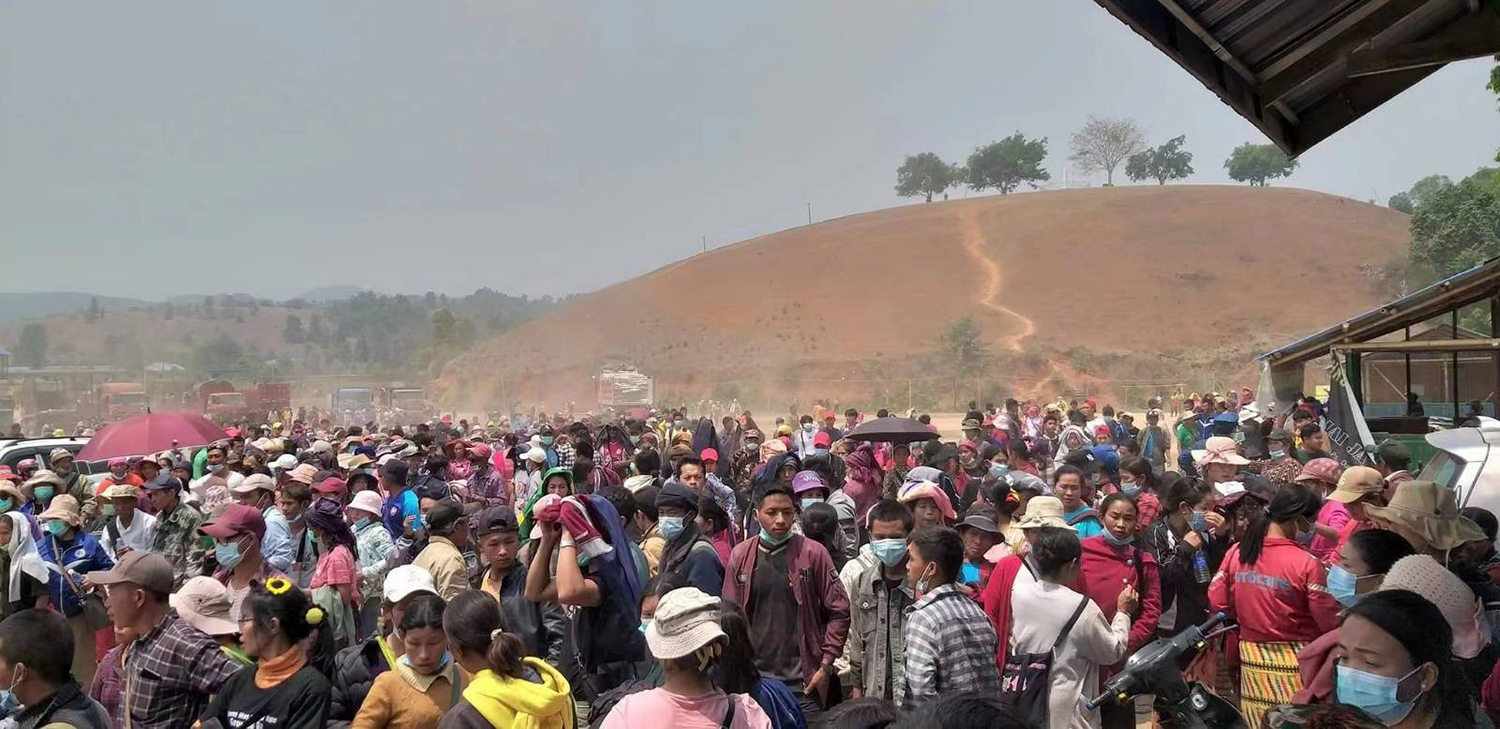A national civil society forum is heading for a confrontation over its decision to defy the Union Peace Dialogue Joint Committee.
By NYAN HLAING LYNN | FRONTIER
A COMMITTEE representing dozens of civil society groups plans to submit discussion papers to the forthcoming 21st Century Panglong Union Peace Conference after having been unable to do so at the previous UPC, held in May last year.
The Union-level Committee CSOs for Peace Forum will try to submit policy papers on federal principles and resettlement and reconstruction at the conference, which is due to convene later this month although a final date has not yet been confirmed.
The CSOs for Peace Forum planned to submit the papers through the Union Peace Dialogue Joint Committee, chaired by State Counsellor Daw Aung San Suu Kyi.
A possible confrontation looms over the move because one of the papers concerns the basic federal principles of a future democratic union, a topic the UPDJC has ruled off-limits for CSOs.
Support more independent journalism like this. Sign up to be a Frontier member.
The papers emerged from a December 27 to 31 event in Mandalay that was attended by nearly 700 people, and the second national-level political dialogue and union-level CSOs peace forum that was held in Nay Pyi Taw on January 2 and 3.
The UCCPF says policy papers have a vital role in the peace process.
“Policy papers like this must be written and then laws must come out so we can envision a federal democracy with lasting peace in which all national races are included,” said U Naw Htoi, a UCCPF member.
The Nay Pyi Taw forum reached agreement on 166 policy recommendations regarding resettlement, reconstruction and social development, and recommendations on eight sectors related to a future federal union.
The recommendations on resettlement, reconstruction and social development included such topics as reconstruction policy, land grabbing, natural disasters, migrants, resettling squatters, and the rehabilitation of drug users.
The policy paper on creating a federal democratic union covers such topics as sovereignty, security and the rule of law, self-determination of the states, power sharing between the union and states, state constitutions, human rights and gender equality, farmers, workers and opportunities for minorities, politics, the economy, education, health, and social and religious affairs.
A possible challenge to the policy papers discussed at the Mandalay event and approved at the forum in Nay Pyi Taw was the absence of CSO representatives from Kayah State.
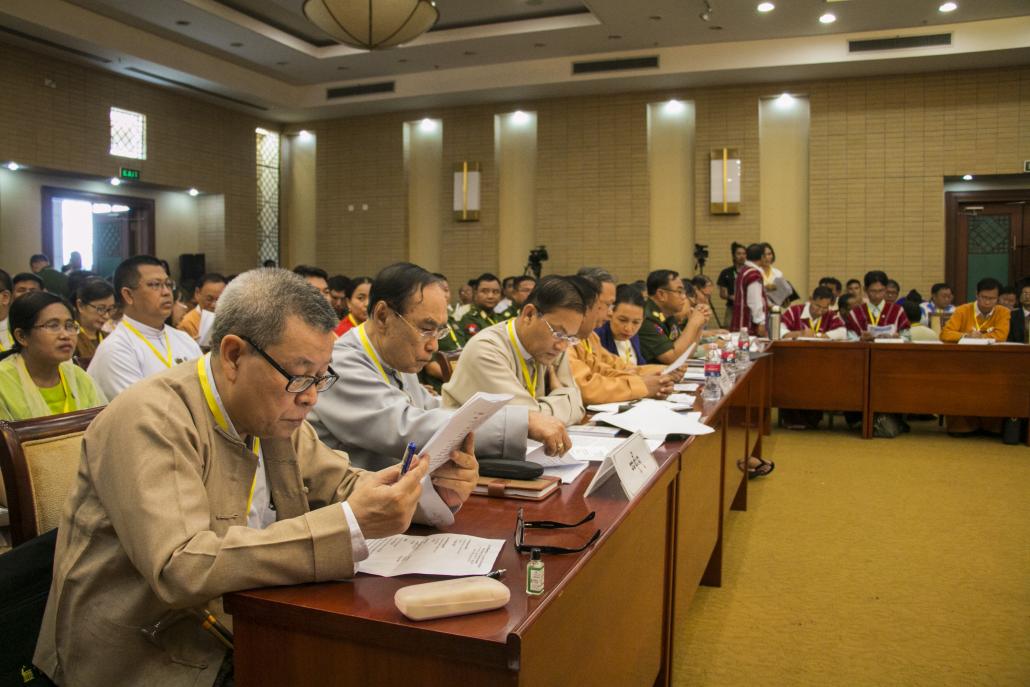
Participants attend a meeting at the 21st Century Panglong Union Peace Conference held in Nay Pyi Taw in May 2017. (Nyein Su Wai Kyaw Soe | Frontier)
Ko Dee Dee, from the Karenni Peasants’ Union, said nearly 30 CSOs in Kayah had decided to boycott the forum because they believe decision-making is being dominated by the Tatmadaw and the National League for Democracy government.
Policies agreed at the forum could only be submitted to the UPC if they were approved by the government’s Union Peace Dialogue Joint Committee, Dee Dee told Frontier, adding that another reason for the boycott was the ban on CSOs participating in decision-making at the conferences.
“The main decisions are in the hands of the Tatmadaw; we can get nothing if they do not like what we propose. We don’t like this situation,” Dee Dee said.
Yangon Region Minister for Social Affairs, U Naing Ngan Lin, who heads the UPDJC executive committee, told Frontier a CSO forum could be held at the same time as the Union Peace Conference. He also said CSOs could submit policy papers to national-level dialogue events and to the UPC through parliament representatives.
Naing Ngan Lin said he had sought permission for representatives at the CSO forum to be included on the UPDJC. “The idea has been considered by the UPDJC working committee but no decision has been made,” he said.
One of the main complaints of CSOs is restrictions imposed by the UPDJC on what can be discussed at forums, which is limited to reconstruction, the environment and federal natural resources. Forum organisers do not accept these restrictions, which is why CSOs have decided to defy the UPDJC and submit a paper on a federal democratic union, as well as the permitted topics of reconstruction and resettlement.
“Only permitted subjects will be accepted,” said Naing Ngan Lin.
CSO forum committee members reject the decision to limit topics for discussion on the grounds that their organisations represent the people.
“We are the medium to carry the voice of the people,” said U Winthee Kaung Myat, from a delegation of Shan CSOs who attended the January forum in Nay Pyi Taw.
The policy papers were presented to the UPDJC on January 3, the last day of the forum, and the CSOs said they had not yet received a response. Frontier was unable to contact UPDJC members to find out if they had been received.


